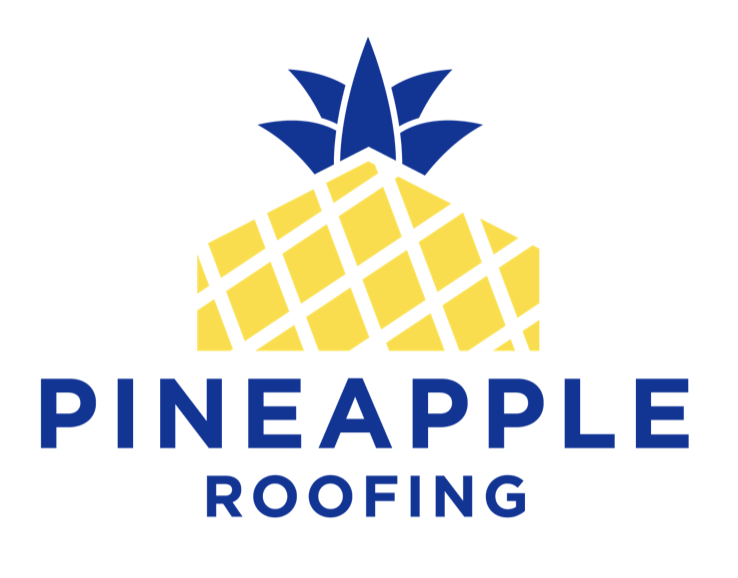When it comes to commercial roofing systems, can I get stuck with the variety of options available. Selecting a quality roofing system is essential to protect your building. Therefore, it is correct to consult a professional roofing company in DFW before proceeding with the installation. If you live in Dallas, Texas, Pine Apple Roofing LLC can guide you on the best options roofing and provide inspection services and quality installation.
Each roofing system is designed to suit different types of buildings and environments. In this guide, we'll tell you about the benefits and drawbacks of each commercial roofing system.
There are three types of commercial Roof repair Dallas, Texas that can be installed using seven types of materials.
Types of roofing systems in Dallas, Texas
Flat roofs: The most common type of commercial roofing systems, flat roofs offer many benefits such as:
More cost-effective than low-sloped or sloped roofs.
Easier to install.
The choice of roofing materials for flat roofs is higher compared with steep slope roofs or walking. The owners can choose from EPDM, PVC, TPO, bitumen, modified bitumen and roofing built.
Solar panels and satellite dishes easy to install on flat roofs.
Flat roofs are easy to clean and maintain because they allow for ease of movement.
Disadvantage:
It offers poor drainage and retains standing water for a long time.
I there is a possibility of leaks and water damage inside the building due to decomposition of the material
Low-slope roofs: Many factories, warehouses and industrial buildings low slope roofs installed. They may appear flat from the ground but have a slight slope.
Most low-slope commercial roofing systems are made up of three main elements:
The waterproofing layer or layers: The waterproofing is the most important element because it prevents water from penetrating the roof layers.
Reinforcement - Reinforcement adds strength, puncture resistance, and dimensional stability to a membrane.
The primer: the primer is the element that protects the waterproofing and reinforcements from sunlight and weather conditions. Some surfaces offer other advantages such as greater fire resistance, resistance to footsteps and hail, and a higher index of solar reflection.
Certain commercial roof systems come with roof membranes, which perform more than one function.
Low slope roofs provide the following benefits:
A brisk allows water to drain.
Safer to install and maintain than pitched roofs.
Solar panels and satellite dishes easy to install on flat roofs compared to steep ones.
Homeowners can choose from the same variety of roofing materials that are used on flat roofs.
Disadvantage:
there are strict building codes for low-sloped roofs.
Heavy snow can add weight to the roof if it is not melted or removed.
Sloped Roofs – Sloped roofs are most commonly installed on residential homes, but many commercial buildings and Commercial Roofing Company Dallas, Texas install them along with flat or low-sloped roofs. Sloped roofs can be a good option for the following reasons:
The steep slope allows the water to drain quickly.
It is easier for snow and other debris to slide down the steep slope.
It does not allow standing water and, therefore, reduces leakage.
It requires less maintenance compared to flat roofs or slope.
Disadvantage:
Expensive and difficult to install because of the steep and difficult to transfer materials.
Consult professional Roof repair Dallas, Texas if you are confused about the type of roof installation that will best suit your building and environment. They will also help you choose from the variety of roofing materials listed below.
Types of roofing materials
Tile roof – Tile roofs are a popular choice for residential roofing, but many business owners also use them for their versatility and cost-effectiveness. You get many shapes of shingles like asphalt, ceramic, slate, and more in distinctive colors. Shingles are easy to install and repair, and almost all professional Commercial Roofing Company Dallas, Texas offers tile roof installation.
However, the lifespan of tile roofs is not as long compared to other commercial roofing materials. Shingles are vulnerable to high-speed wind and crack easily. They are also susceptible to moss and mold.
Metal Roofs – A good choice for both flat and steep roof systems, many building owners choose metal roofs for their aesthetic appeal and long life. The average lifespan of metal roofing is around 20 to 50 years. Initially made of bronze, these roofing systems now make use of different metals such as corrugated galvanized steel, zinc, aluminum, and stainless steel.
Metal roofs are prone to oxidation and corrosion. Therefore, an additional layer is added to protect the roof against moisture, pollution, and environmental damage different. Roofs made of copper or aluminum are also prone to dents. Therefore, you should consult with a roofer and request a material incorporating a guarantee without denting.
BUR Embedded Membrane Roof: One of the oldest roof types, BUR roofs are made from alternating layers of tar and gravel. Therefore, if a layer breaks, other layers protect the roof. These UV-resistant roofs are easy to repair and less expensive to install. Unlike shingles, BUR creates a continuously sealed surface.
BUR roofs have a short lifespan of around 20 years and it is difficult to identify leaks in them as they age.
Single-Ply Roofing System – Single-ply roofing is a low-maintenance roofing system that has gained popularity in the recent past. These reliable commercial roofing systems are sold with a manufacturer's warranty. Single-layer membranes come in two varieties:
EPDM thermosetting membrane is a synthetic rubber roofing membrane that is durable and offers robust protection against sunlight and pollution. These roofing membranes are not aesthetically appealing as they come in black-and-white rolls, and can easily be punctured by falling debris or people walking on the roof.
TPO Thermoplastic Polyolefin Membrane and PVC Polyvinyl Chlorides are lightweight, UV-resistant, and puncture-protected. They have air-welded beams that protect against fire, high-speed wind, and high temperatures. It is easy to clone TPO with cheap quality materials. So please be careful and buy only from registered sellers.
Green Roof System: Nature-sensitive building owners are rapidly installing green roofs or green roofs on their buildings. Although green roof installations have numerous environmental benefits, there are many things to consider before choosing one.
Plants, multiple layers of soil, waterproofing, etc. can add to the weight of the roof.
Green roofs retain water for an extended period of time, which can cause building leaks. Therefore, it is essential to install a thermoplastic waterproofing membrane as part of the green roof system. However, green roofs can last 40 to 50 years with regular maintenance and monitoring.
Conclusion
In choosing a type of commercial roofing system in Dallas, Texas, for your building, consider whether your roof is exposed to strong winds, extreme temperatures or other environmental conditions. Also, consider the lifespan and costs of the roof, and don't forget to check the building codes.
We recommend consulting a professional commercial roofing company in DFW contractor before making your final decision.

